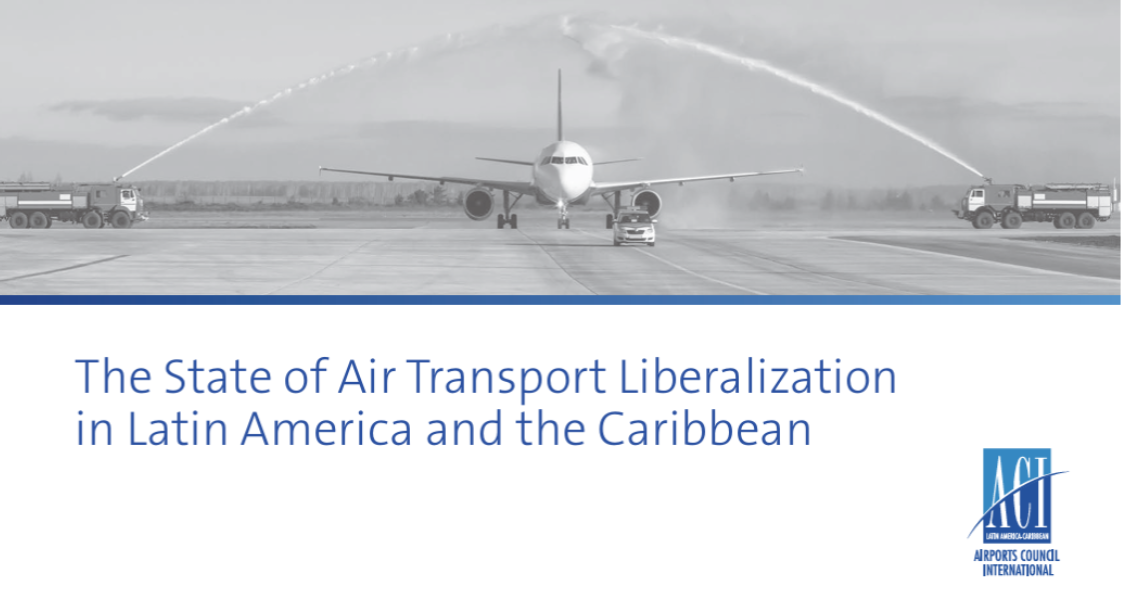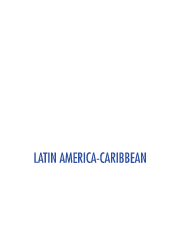Medios
INICIO
MEDIOS

Panama, April 22, 2025 – In an effort to strengthen air connectivity, enhance competitiveness, and foster economic development in the region, the Airports Council International – Latin America and the Caribbean (ACI-LAC) has published a study on the current state of air transport liberalization in Latin America and the Caribbean. This analysis, conducted by NACO – Netherlands Airport Consultants, examines key challenges and seeks to promote a regional strategy aimed at improving air connectivity, economic growth, and the competitiveness of the region’s airports.
Context and Relevance of the Study
Air transport is a cornerstone of both global and regional economies, connecting communities, driving tourism, and enabling trade. However, airports and airlines in the region face multiple barriers that limit their ability to attract new routes and develop air services. In more liberalized markets, reforms have led to increased access to low-cost travel, lower fares, and more air traffic—all of which support tourism. Still, connectivity in the Latin America and Caribbean (LAC) region lags behind, with fewer direct flights and limited presence of low-cost carriers..
The report emphasizes that the liberalization of air services would not only have a highly positive impact on economic growth — through job creation and increased tourism — but would also strengthen secondary and regional airports by promoting point-to-point routes and attracting new airlines.
Key Findings
- Global Success Stories: The study analyzes examples such as the European Single Aviation Market and the open skies agreement between Australia and New Zealand, highlighting how removing air traffic restrictions can boost competitiveness, reduce travel costs, and expand route networks.
- Opportunities for LAC: In Latin America and the Caribbean, existing bilateral agreements include significant limitations, such as conditional traffic rights and complex regulatory procedures. These issues particularly affect secondary and regional airports with untapped potential.
- Economic Impact: Enhanced air connectivity could increase tourism flows, facilitate trade, and attract foreign investment. The study notes that each increase in connectivity brings direct and indirect economic benefits to local communities.
Strategic Recommendations
The report outlines a comprehensive agenda to move forward with liberalization, based on:
- Regional Collaboration: Strengthening alliances between airports, airlines, and governments to remove regulatory barriers and promote multilateral agreements.
- Regulatory Reform: Streamlining authorization processes, harmonizing policies, and ensuring transparency in slot allocation.
- Connectivity Promotion: Focusing efforts on developing routes to secondary and regional airports to stimulate local growth and access new markets.
A Call to Action
ACI-LAC urges authorities across the region to prioritize air transport liberalization as a key development tool.
"Liberalization is not an end in itself, but a pathway to strengthening global competitiveness and ensuring that Latin America and the Caribbean reach their full potential in an increasingly globalized market," said Dr. Rafael Echevarne, Director General of ACI-LAC.
"Recent efforts to liberalize air transport in the region must be supported by institutional and regulatory reforms that ensure a business-friendly and predictable environment for commercial air services. Regional connectivity should also become a central political driver for future reforms and initiatives. Airports can position themselves as key actors at the forefront of public policy innovation and future efforts to support air connectivity in Latin America and the Caribbean," stated Marcelo L. García, Head of Aviation Policy and Strategic Aviation Advisory Lead at NACO.
This study not only highlights the current challenges but also charts a path toward a more competitive and better-connected future for the region.
Read the full study at: https://aci-lac.aero/wp-content/uploads/2024/10/2024-ACI-LAC-Air-Liberalization-Study-FINAL-ENG.pdf
The Voice of LATIN AMERICA & CARIBBEAN AIRPORTS


